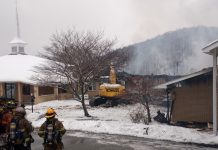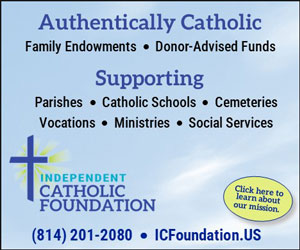By Justin Kirkland
The Diocese of Altoona-Johnstown and the Youth Protection office have worked and continue to work nonstop, focusing on implementing trainings and clearance measures in order to create safe environments within our parishes and faith communities. Though this process has been painful at times, we continually work to make these processes as painless and without hardships as possible. But what happens when we are all in quarantine? The goal is not just safe environments in churches, but everywhere, and for everyone, including vulnerable adults. Many of us think that our homes are the safest places on earth, but it unfortunately doesn’t seem to be the case.
I am from a very internet driven generation — the generation which always seems to have their phones in their hands, streaming anything and everything, and searching the internet for all of the answers to our questions. Especially now with quarantine measures, I am on my phone, a lot, which in and of itself isn’t necessarily a bad thing, but, as we know, the internet isn’t rainbows and butterflies all the time. Many of us who consume modern media know that it isn’t always wholesome and in line with Catholic teaching, and can be a real near occasion of sin, specifically through the idealization of substance abuse, and the over sexualization and objectification of women and men.
This bombardment can be detrimental to all of us, whether we are young or old. The way in which we consume media and information shapes the way that we live our lives, what we say, and what we do, as the old phrase goes, “we are what we eat.” If we consume only that which is contrary to our beliefs and we are not yet properly formed in virtue and prayer, how can we expect to live in accordance with Christ?
Some ways which we can prevent this is to be disciplined. Setting rules and time limits, monitoring activity, parental controls, and finding alternative activities can be great ways to limit unwanted information. We can also work on our communication with others by asking for accountability from family and friends, talking about the harms of the internet, and emphasizing physically communal based activities. We must also work on our spiritual lives as well by committing time every day to pray and learn about our faith and the God who loves us. We may also want to reevaluate how we absorb news sources and social media, being mindful of who we interact with on the internet and that one source isn’t always reliable. Since we are able to consume much more than ever before, we should have a sense of skepticism when funneling information, looking to see if the article or agency is a reputable source.
These tips are for everyone, children and adults. As we continue to work on making our parishes and overall communities safe environments, we should also be making sure that this transitions into our own homes and lives. Using the virtues of prudence and discipline, as well as other resources which can be found at https://youthprotection.dioceseaj.org/parent-resources/, we can make sure that media, which could potentially have destructive effects on us and our communities, don’t.
Justin Kirkland works in the Diocesan Office of Children and Youth Protection.






























